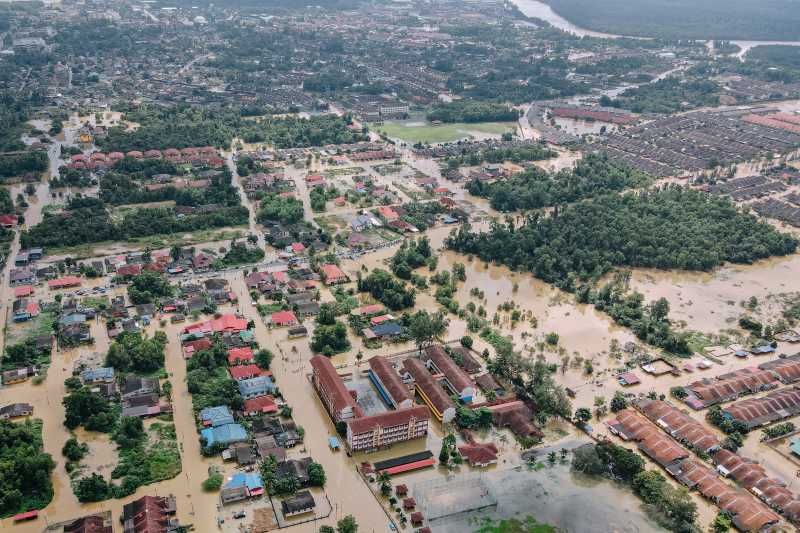When disaster strikes in the form of a flood, Florida homeowners often find themselves in a whirlwind of stress and confusion. This is where LMR Public Adjusters steps in. As South Florida’s premier public adjusters, we specialize in guiding homeowners through the complex process of flood damage claims. Our dedicated team of experts works tirelessly to advocate for property owners, ensuring they receive the maximum payout from their insurance claims. This blog post will provide a step-by-step guide to help you navigate the intricacies of flood damage claims in Florida. We’ll cover everything from initial damage assessment to final settlement, ensuring you’re well-equipped to handle this challenging situation. With our expertise in flood damage, insurance claims, and Florida’s specific regulations, we’re your best ally in turning a stressful situation into a manageable one.
Understanding the Basics of Flood Damage Claims

Flood damage can be a devastating event for Florida homeowners. It’s crucial to understand the basics of flood damage claims to ensure you receive the compensation you deserve. When a flood occurs, the first step is to document the damage. This includes taking photographs and making a list of damaged items, including their value. It’s also important to keep receipts for any repairs or replacements as these will be needed when filing your claim.
Next, you should contact your insurance company as soon as possible to report the damage. They will guide you through the process of filing a claim. It’s important to understand your policy, including what is covered and what is not. For example, some policies may not cover damage caused by a lack of maintenance or neglect.
If you’re unsure about any aspect of your claim, consider hiring a public adjuster. They can help you navigate the claims process and ensure you receive a fair settlement.
According to the Federal Emergency Management Agency (FEMA), flood damage is one of the most common and costly types of disaster in the U.S. In fact, just one inch of water can cause up to $25,000 in damage to a home.
Remember, it’s important to act quickly after a flood. The sooner you file your claim, the sooner you can start the recovery process. For more information, visit our FAQ page or read our blog for more tips on dealing with flood damage.
- Document the damage
- Contact your insurance company
- Understand your policy
- Consider hiring a public adjuster
For more detailed information on specific types of damage, check out our pages on water damage, wind damage, and mold damage.
The Importance of a Comprehensive Home Inventory for Flood Damage Claims

In the aftermath of a flood, Florida homeowners may find themselves facing significant damage to their property. One crucial step in the process of filing a flood damage claim is creating a comprehensive home inventory. This inventory serves as a detailed record of all personal belongings and their estimated value. It is an essential tool for accurately assessing the extent of the damage and ensuring a fair settlement from your insurance company.
A comprehensive home inventory should include all items in your home, from furniture and appliances to clothing and personal items. Each item should be described in detail, including its make, model, serial number, purchase date, and estimated value. Photographs or video footage can provide additional evidence of the condition of items before the flood.
Having a pre-existing home inventory can significantly simplify the claims process. However, if you don’t have one, start by listing items room by room, not forgetting items stored in basements, attics, or garages.
For more information on how to create a comprehensive home inventory, visit our FAQ page. If you’re unsure about the process, our team of property claims specialists can guide you through it.
Remember, a comprehensive home inventory is not just useful for flood damage claims. It can also be invaluable in the event of other disasters, such as fires or hurricanes. Check out our blog for more tips on protecting your property and ensuring a smooth claims process.
Step-by-Step Process of Filing a Flood Damage Claim in Florida

Flood damage can be devastating for homeowners in Florida, but understanding the process of filing a claim can help alleviate some of the stress. The first step is to document the damage. Take photos and videos of all affected areas, making sure to capture any structural damage, as well as damage to personal belongings. This evidence will be crucial when you file your claim with your insurance company.
Next, contact your insurance provider as soon as possible to report the damage. Be prepared to provide details about the extent of the damage and any steps you’ve taken to prevent further damage. It’s important to understand your policy’s coverage limits and deductibles. If you’re unsure, consider consulting with a public adjuster who can help you navigate the claims process.
Once your claim is filed, your insurance company will send an adjuster to assess the damage. It’s beneficial to have your own property claims adjuster present during this assessment to ensure all damage is accurately documented.
After the assessment, your insurance company will provide a payout estimate. If you disagree with this estimate, you can dispute it. This is where a public adjuster can be invaluable, as they can negotiate on your behalf to ensure you receive a fair settlement.
Finally, once your claim is settled, you can begin the process of repairing your home. Remember to keep all receipts related to repairs and replacement items, as these may be required by your insurance company.
Throughout this process, it’s crucial to stay organized and keep a record of all communications with your insurance company. This will help ensure a smoother claims process and a fair settlement.
Common Mistakes to Avoid When Filing a Flood Damage Claim
Filing a flood damage claim can be a daunting task for Florida homeowners. It’s crucial to avoid common mistakes that could potentially hinder the claim process or result in a lower settlement. One common error is not understanding your insurance policy. Many homeowners are unaware of the specifics of their coverage, which can lead to disputes with the insurance company. To prevent this, it’s recommended to familiarize yourself with your policy and consult with professionals like LMR Public Adjusters if you have any doubts.
Another frequent mistake is not documenting the damage thoroughly. It’s essential to take detailed photos and videos of all affected areas and items. This documentation will serve as evidence when negotiating with the insurance company. For more guidance on this, check out our FAQ page.
Delaying the claim process is another common pitfall. It’s important to file your claim as soon as possible after the flood damage occurs. This not only speeds up the process but also prevents further damage that might not be covered by your insurance.
Lastly, many homeowners make the mistake of not seeking professional help. Hiring a public adjuster can significantly improve your chances of getting a fair settlement. They can help you navigate the complex claim process, negotiate with the insurance company, and ensure all damage is accounted for. Learn more about our services on our Property Claims page.
By avoiding these common mistakes, you can ensure a smoother claim process and increase your chances of receiving a fair settlement for your flood damage.
Navigating the Insurance Company’s Evaluation and Settlement Offer
Understanding the process of an insurance company’s evaluation and settlement offer is crucial when dealing with flood damage claims. After a flood, Florida homeowners must promptly report the incident to their insurance company. The company will then send an adjuster to evaluate the extent of the damage. This evaluation is critical as it determines the amount the insurance company is willing to pay for repairs.
However, it’s important to note that insurance companies are businesses aiming to minimize their payouts. Therefore, the initial settlement offer may not cover all the necessary repairs. To ensure a fair settlement, homeowners can hire a public adjuster. These professionals work on behalf of the policyholder, not the insurance company, and can provide an independent evaluation of the damage.
Once the evaluation is complete, the negotiation process begins. This can be a complex and time-consuming process, but understanding your policy and the extent of your damage can help. If the settlement offer is unsatisfactory, homeowners have the right to dispute it.
During this process, it’s beneficial to have a professional on your side. Public adjusters can help homeowners navigate through the complexities of the insurance claim process, ensuring they receive a fair settlement. They can also assist in preparing necessary documentation, such as property claims, to support the claim.
Remember, the goal is to restore your home to its pre-loss condition. Don’t settle for less than what you deserve. With the right knowledge and assistance, you can successfully navigate the insurance company’s evaluation and settlement offer.
Seeking Professional Help: When to Involve a Public Adjuster or Attorney
Navigating the complexities of flood damage claims can be a daunting task for Florida homeowners. It’s crucial to understand when it’s appropriate to seek professional assistance from a public adjuster or attorney. Public adjusters, like those at LMR Public Adjusters, are licensed professionals who can help you understand your insurance policy, assess your flood damage, and negotiate with your insurance company on your behalf. They can be particularly beneficial if your claim is substantial or if you’re having difficulty understanding the intricacies of your policy.
On the other hand, an attorney may be necessary if your insurance company denies your claim or if there’s a dispute over the cause of the damage. Attorneys specializing in property damage claims can provide legal advice and represent you in court if necessary.
It’s important to involve a professional as soon as you feel overwhelmed or unsure about the claims process. This could be immediately after the flood event, when you’re filing your claim, or even after you’ve received a settlement offer from your insurance company.
For more information on when to involve a professional, visit our FAQ page. For specific details on different types of damage, such as water damage or wind damage, visit our property claims page. Remember, the goal is to ensure you receive a fair settlement to cover your flood damage repairs and related expenses.
Tips for Preventing Future Flood Damage to Your Florida Home
Living in Florida, homeowners are often faced with the risk of flood damage due to the state’s geographical location and climate. It’s crucial to take proactive steps to mitigate potential damage and reduce the need for extensive property claims. One of the first steps is to understand your home’s flood zone and the associated risks. This information can guide you in making necessary home improvements.
Investing in flood-resistant materials for your home’s construction can significantly reduce potential damage. These materials can withstand direct contact with water for at least 72 hours without being significantly damaged. It’s also advisable to elevate critical utilities, such as electrical panels, switches, and appliances, to prevent water damage.
Proper home maintenance is another essential aspect of flood damage prevention. Regularly inspect and clean your gutters and drainage systems to ensure they function correctly during heavy rainfall. Additionally, consider installing check valves in your plumbing system to prevent floodwater from backing up into your drains.
In case of an imminent flood, having a flood response plan can save both your home and your life. This plan should include a list of items to move to higher ground, emergency numbers, and evacuation routes.
Lastly, ensure you have adequate flood insurance coverage. This can be a lifesaver when the unexpected happens. If you’re unsure about the process, FAQs on our website can provide more information. You can also read about the experiences of other homeowners on our Google reviews page.
Remember, preventing flood damage is always more cost-effective than dealing with the aftermath.
In conclusion, dealing with flood damage in Florida can be a daunting task for homeowners. However, understanding the process of filing flood damage claims can significantly ease this burden. By following the step-by-step guide provided in this blog, you can navigate through the complexities of the insurance claim process with confidence. Remember, it’s crucial to act promptly, document all damages thoroughly, and communicate effectively with your insurance company. Don’t hesitate to seek professional help if needed. Ultimately, being prepared and informed is your best defense against the financial impact of flood damage.







